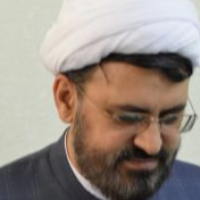Examining Avrom Stroll's point of view about Wittgenstein's two different understandings of the foundations of certain beliefs
Since the time of Aristotle, some philosophers have insisted on the point that a part of knowledge is more fundamental than other parts. There have been various forms of foundationalism in epistemology, ethics and logic, and each of them has considered a certain matter as the basis according to the field under discussion. Avrum Stroll believes that Wittgenstein is a fundamentalist, but his fundamentalism is completely different from the approach of traditional fundamentalists, and Wittgenstein's intelligent distinction between knowledge and its foundations keeps his fundamentalism away from the problems that traditional fundamentalists have. Stroll enumerates nine conditions for fundamentalism and believes that these nine conditions exist in Wittgenstein's epistemological system. He believes that Wittgenstein gives two different understandings of the basis of certain beliefs, one is relative (propositional) fundamentalism and the other is absolute (non-propositional) fundamentalism, and over time Wittgenstein moves away from relative fundamentalism and leans towards absolute fundamentalism. In this article, after clarifying Stroll's argument about Wittgenstein's fundamentalism and the difference between this fundamentalism and its traditional interpretations, we examine Stroll's distinction between Wittgenstein's two conceptions of fundamentalism and show what characteristics each of these two conceptions has and how Wittgenstein prefers the absolute fundamentalism and expands it.
-
Wittgenstein V G. E. Moore A comparative study between Wittgenstein and Moore about the two concepts of knowledge and certainty
Mohammad Saied Abdollahi, *
Journal of Epistemological Research, -
Divine Traditions as the Constitutive Principles in the Ontology of Society and Its Consequences
Ahmad Sadeqi, Mohammadali Abdollahi *
Philosophy Of Religion Research,


